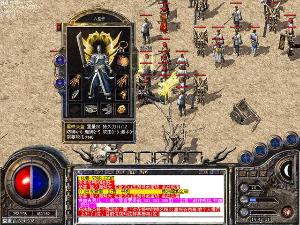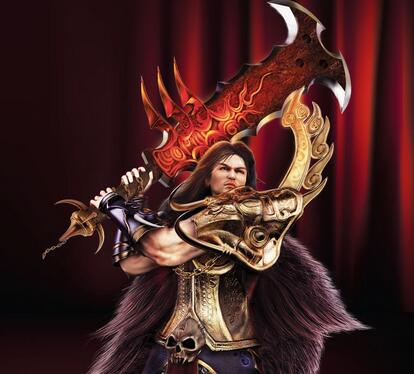网通新开1.76复古传奇发布网站
宝贝开服网
- admin 2024年9月12日0
sifuchuanqi: Exploring the Fascinating World of Sifuchuanqi in Traditional Chinese Martial Arts
Sifuchuanqi, often regarded as a fundamental aspect of traditional Chinese martial arts, encompasses various techniques, philosophies, and training methods that have been passed down through generations. This article delves into the rich history, significance, and practice of Sifuchuanqi, shedding light on its relevance in modern martial arts as well as its cultural implications.
1. The Historical Context of Sifuchuanqi
To understand Sifuchuanqi, it is crucial to explore its historical roots. The term itself can be translated to “the principles of the master” or “the teachings of the master,” reflecting its connection to the mentor-student relationship prevalent in many martial arts traditions. Sifuchuanqi emerged during a time when martial arts were deeply intertwined with Chinese philosophy, particularly Taoism and Confucianism, which shaped the ethical and moral values imparted through martial training.
Originally, Sifuchuanqi was practiced within monastic settings, particularly in temples where monks trained rigorously to achieve physical prowess and spiritual enlightenment. This system emphasized not merely physical combat but also the development of character, discipline, and respect for others. The transmission of knowledge through a master-student dynamic fostered a sense of lineage which is still revered in contemporary martial arts schools.
2. Core Principles of Sifuchuanqi

The essence of Sifuchuanqi lies in its core principles, which are as relevant today as they were centuries ago. Here are some of the foundational elements:

1. Mastery of Techniques: At the heart of Sifuchuanqi is the rigorous practice of martial techniques, including strikes, blocks, and footwork. Aspiring martial artists must invest time in mastering these movements to build a solid foundation before advancing to more complex forms.
2. Philosophy and Ethics: Sifuchuanqi emphasizes the importance of moral integrity and self-discipline. Practitioners are taught to uphold virtues such as humility, respect, and perseverance, ensuring that martial skills are not misused for personal gain or aggression.
3. Adaptability and Fluidity: One of the hallmarks of Sifuchuanqi is the ability to adapt techniques according to varying circumstances. This flexibility is crucial, enabling practitioners to respond effectively to different opponents and situations, reflecting the dynamic nature of martial arts.
4. Teacher-Student Relationships: The transmission of knowledge between masters and students is considered sacred within Sifuchuanqi. This relationship fosters a unique bond, allowing students to learn not just techniques, but also the philosophical underpinnings that shape their practice.
3. Modern Applications of Sifuchuanqi
In todays rapidly changing world, the principles of Sifuchuanqi have found relevance beyond traditional martial arts circles. Many modern practitioners integrate these teachings into their daily lives, applying them to various aspects such as personal growth, conflict resolution, and overall well-being.
1. Personal Development: The discipline instilled through Sifuchuanqi training encourages practitioners to set and achieve personal goals. The focus on self-improvement through consistent practice helps individuals cultivate resilience, patience, and mental fortitude, which can enhance their personal and professional lives.
2. Conflict Resolution: The philosophical teachings of Sifuchuanqi equip individuals with conflict resolution skills. By emphasizing understanding and respect, practitioners are encouraged to approach conflicts with a calm demeanor, seeking peaceful resolutions rather than resorting to aggression.
3. Fitness and Health: Engaging in Sifuchuanqi training promotes physical fitness and well-being. The diverse exercises involved not only enhance strength and agility but also contribute to mental clarity and emotional balance, making it an effective approach for holistic health.
4. The Future of Sifuchuanqi
As society evolves, so does the practice of Sifuchuanqi. With the rise of digital technology and the growth of online learning platforms, martial arts instruction has become more accessible. This shift presents both challenges and opportunities for Sifuchuanqi preservation and innovation.
1. Digital Integration: Online classes and virtual conferences allow practitioners from around the world to connect and share resources. However, this digital transformation raises questions about the authenticity of the master-student relationship, potentially altering the traditional transmission methods.
2. Global Reach: As interest in traditional Chinese martial arts grows globally, Sifuchuanqi has the potential to reach a broader audience. Awareness of its philosophies can inspire individuals from various backgrounds to adopt its principles, promoting cross-cultural understanding and appreciation.
3. Preservation of Heritage: Maintaining the integrity of Sifuchuanqi requires a collective effort from practitioners and instructors. By documenting practices, sharing knowledge, and fostering communities dedicated to traditional teachings, the essence of Sifuchuanqi can be preserved for future generations.
Conclusion
In conclusion, Sifuchuanqi is more than just a repertoire of martial techniques; it embodies a holistic approach to personal and social development. Rooted in a rich historical context, this practice continues to evolve, adapting to contemporary needs while preserving its core philosophies. By understanding and practicing Sifuchuanqi, individuals not only enhance their martial abilities but also engage in meaningful personal growth and contribute positively to their communities. The journey of Sifuchuanqi is one that intertwines mind, body, and spirit — a testament to the enduring legacy of traditional Chinese martial arts.
文章内容页下在线分享
sifuchuanqi: Exploring the Fascinating World of Sifuchuanqi in Traditional Chinese Martial Arts
Powered By 2020-2025 Theme By 网站地图
评论列表: